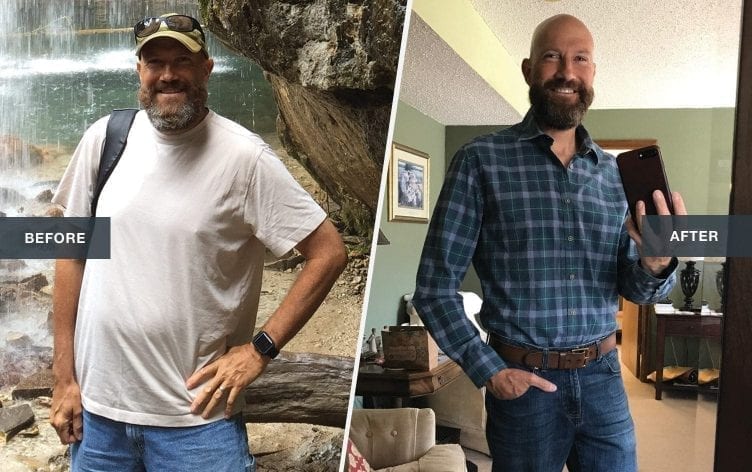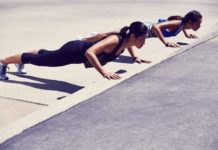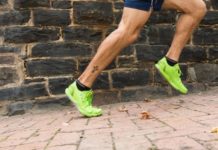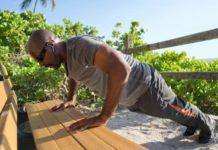
Why a Ski Trip Turned Around Todd’s Health and Fitness
As Todd Williams was lying in the snow, hands still gripping his ski poles and his sons whizzing down the ski run with ease, he began to take stock of his life.
It was early in the Colorado ski season and he had been looking forward to months of fun and challenging runs on the slopes. After teaching his five kids to ski while they were growing up, Williams was confident in his abilities. But there he was, exhausted and struggling to get up from a fall in the powder. Again.
“I felt like the Pillsbury Doughboy whenever I had to stand up,” he recalls. “The whole day consisted of huffing and puffing, and of course, falling. That’s the moment when I thought: This is not working. This is not how a guy in his late 40s should be. Something needs to change.”
For the couple decades leading up to that moment, Williams led a fairly sedentary lifestyle outside of the kids’ ski lessons. As a businessman in Colorado Springs, Colorado, he spent a great deal of time at a desk or in his car and ate plenty of on-the-go meals. Since his mid-20s, when he first felt truly overweight, he’d embarked on one fad diet or another, losing 20–30 pounds at a time and then regaining the weight as soon as he grew tired of dieting.
The ski incident, coupled with a looming 50th birthday, convinced him to try a different tactic. Rather than starting yet another trendy diet that was doomed to fail, he started tracking his food intake with MyFitnessPal. He set a weight goal and used the app to determine a realistic timeframe for getting there. For the first time, he knew exactly how many calories to eat per day and how his daily meals fit into a larger weight-loss goal.
After some time using the app, he realized the more he exercised, the more calories he could eat while still staying on track — an adjustment the app made automatically. Williams had started running on a regular basis and needed some extra calories to fuel his workouts, but was careful to stick to his calorie goals.
Williams admits to still eating his favorite foods from time-to-time, like hamburgers, french fries and pizza, but he’s also developed a love for healthy food and can easily see when less-than-stellar meal choices are starting to become a problem. He knows if he slacks on tracking his food, it’s likely he’d start slipping into his old patterns — like overeating or snacking mindlessly while traveling from one client meeting to another.
“Even though I lost the weight and kept it off, tracking helps me to continue making better choices,” he says. “Because I’ve been doing this for so long, I spend less than two minutes a day entering my food. But the effect of tracking and being aware of my choices lasts all day.”
Five years later, that day on the ski slopes seems like a different lifetime for Williams. He’s lost 50 pounds and still logs his meals every day.

His healthy eating is also giving him more energy than he had even as a 20-something, he says. These days, he skis more than ever, plays drums in a band, owns his own business and has run two marathons and a number of half marathons. He also just signed up to tackle one of the toughest races in the world, the Pikes Peak Marathon, which takes runners straight up the mountain for the first 13.1 miles and straight back down for the second half.
“Everything is affected by being healthier,” he says. “Five years ago, I would never have imagined I could be at this point. But now, I go on my morning run and look up at that mountain and I think, ‘I’ll be running up there soon.’ What an incredible feeling. Commit to the process and it will really pay off.”
































